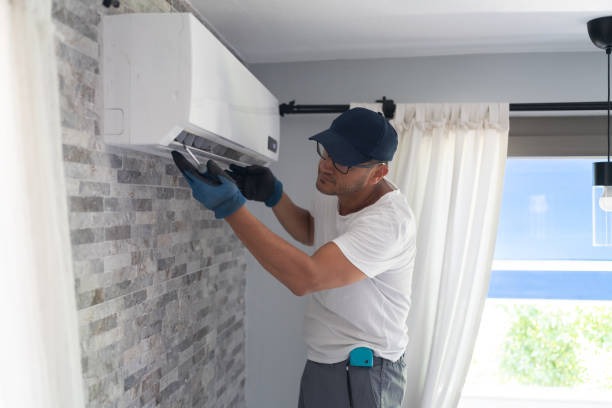As we look ahead to the future of home automation, it’s clear that smart home devices will play a significant role in maximizing HVAC efficiency by 2025. The integration of technology into our homes has already begun to transform how we manage and conserve energy, and this trend is only set to continue.
One of the most anticipated devices is the next-generation smart thermostat. Building on existing models like Nest or Ecobee, these thermostats are expected to offer more advanced features such as predictive scheduling based on your lifestyle patterns and real-time weather updates for better temperature regulation. They will also be able to communicate with other smart devices in your home, creating an interconnected system that optimizes energy use across all appliances.
Another exciting development is the rise of intelligent air purifiers. These devices not only clean the air but also monitor indoor air quality in real time. By linking up with your HVAC system, they can adjust their operation based on current conditions – for instance, if pollutants or allergens are detected, they can prompt your HVAC system to increase ventilation until levels return to normal.
Smart vents provide another avenue for enhancing HVAC efficiency. These clever gadgets allow homeowners to control explore further airflow room by room using an app or voice commands via a virtual assistant like Amazon Alexa or Google Home Assistant. This means you can direct heating or cooling where it’s needed most rather than wasting energy on unoccupied rooms.
The emergence of AI-powered HVAC systems also promises impressive potential for energy savings. Such systems would leverage machine learning algorithms to learn from past performance data and continually optimize operations for maximum efficiency without sacrificing comfort.
A less obvious but equally important device is an energy monitoring tool that provides detailed insights into your home’s power consumption patterns. With this information at hand, homeowners can make informed decisions about when and how much power their HVAC system should consume during peak hours versus off-peak times.
Finally, there’s no denying the impact of solar panels in boosting HVAC efficiency. By 2025, we can expect to see more homes equipped with solar panels that power their HVAC systems, reducing reliance on the grid and lowering energy costs.
In conclusion, as we move towards 2025, a range of smart home devices will be at the forefront of maximizing HVAC efficiency. From advanced thermostats and air purifiers to smart vents, AI-powered systems, energy monitors and solar panels – these technologies will not only make our homes more comfortable but also significantly reduce our environmental footprint. The future of HVAC is indeed bright and brimming with possibilities for homeowners worldwide.

